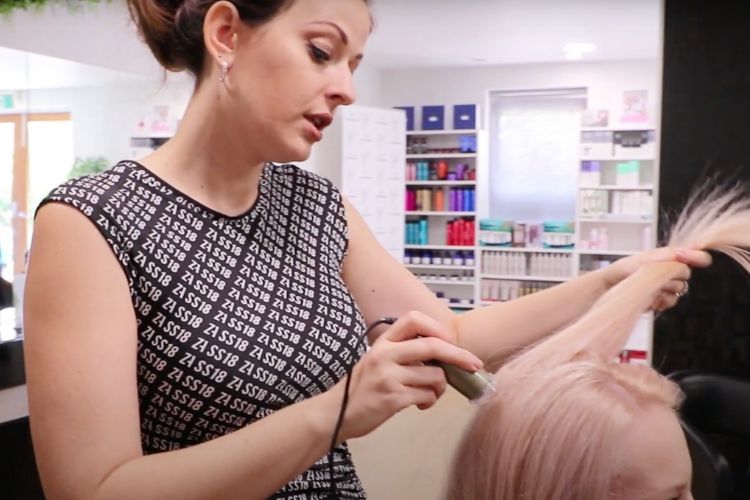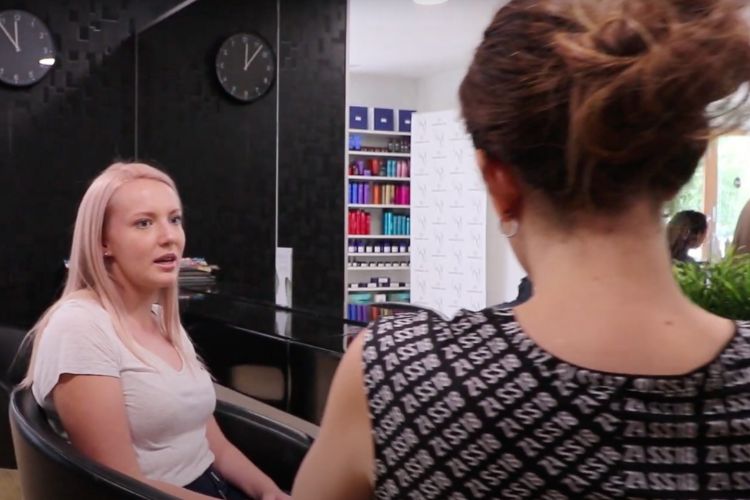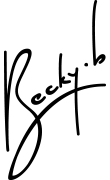From the sandy beaches of the Gold Coast to the bustling streets of Sydney, many Aussies (both men and women) face hair thinning or hair loss.
It is not just a matter of vanity; it’s about confidence, identity, and in some cases, underlying health concerns. Enter the world of trichology — diagnosing the root cause (pun intended!) of your hair woes.
In this article, we’re diving deep into this hair-raising issue and shining a spotlight on the Sunshine Coast’s best trichologists. Whether you’re trying to pinpoint the cause, debunk hair loss myths, or find professional assistance — we’ve got it all covered! Let’s get started.

Causes of Hair Loss
While some attribute hair loss to simply ageing, there’s a whole range of factors playing hide and seek beneath the surface. Let’s uncover some of the common causes:
- Genetics: Often, the main culprit is your family tree. Androgenetic alopecia, commonly known as male or female pattern baldness, is usually inherited.
- Stress: Major life changes or traumatic events can lead to temporary hair thinning.
- Medications: Certain medications can result in hair loss as a side effect.
- Hormonal changes: Conditions like menopause, thyroid disorders, or pregnancy can trigger hair loss.
- Scalp conditions: Psoriasis or fungal infections can damage the scalp and hair follicles.
Signs & Symptoms of Hair Loss
While a few stray hairs in the shower drain aren’t a cause for alarm, there are definite signs and symptoms pointing towards hair loss.
It is more than just counting strands. Sometimes, it’s about observing subtle changes. Here are some tell-tale signs:
- Thinning on top: A gradually receding hairline, especially around the temples, is often the first sign.
- Bald spots: Circular or patchy bald spots, often coin-sized, may appear.
- Loosening hair: Sudden physical or emotional shocks can result in hair coming out in handfuls during combing or washing.
- Full-body hair loss: Some conditions and treatments, like chemotherapy, can result in hair loss all over your body.
- Scaly patches: Ringworm or other infections might lead to hair loss and be accompanied by broken hair, redness, and swelling.

Treatments for Hair Loss
Tackling hair loss isn’t about finding a stylish hat or scarf. With today’s advancements, there’s a plethora of treatments to restore your luscious locks.
From the products on salon shelves to renowned dermatologists and techniques, let’s unravel some popular remedies:
- Minoxidil: An over-the-counter foam or liquid that’s applied to the scalp, promoting hair growth and retaining existing strands.
- Laser therapy: Red light therapy purportedly stimulates hair follicles and enhances growth.
- PRP (platelet-rich plasma): A treatment using your blood to rejuvenate hair follicles.
- Hair transplants: A surgical procedure relocating hair follicles from one part of the body to thinning or balding areas.
Diagnosing Hair Loss
Diagnosing hair loss requires a thorough investigation. It is not simply about surface-level observations; we need to delve deep to pinpoint the root cause. Here’s how the experts typically go about it:
- Detailed consultation: Discussing your medical history, lifestyle, and stress levels can shed light on potential triggers.
- Physical examination: A close look at the scalp can help identify conditions like fungal infections or alopecia areata.
- Blood tests: Used to check for thyroid issues or other underlying health problems.
- Pull test: By gently pulling a few strands, doctors can determine the hair’s strength and the stage of the shedding process.
- Microscopic analysis: A trichologist may examine plucked hairs under a microscope to uncover potential issues at the follicular level.
Prevention of Hair Loss
Preventing hair loss might seem like a challenging puzzle, but with the right pieces in place, maintaining a full head of hair becomes a competition you can win.
Before reaching for the panic buttons or expensive treatments, consider these proactive steps:
- Nutrition: A balanced diet rich in vitamins, especially biotin, can fortify hair health.
- Scalp care: Regular cleansing to keep the scalp clean and free from product buildup.
- Avoid tight hairstyles: Constant tension on hair follicles from styles like tight ponytails can lead to breakage.
- Limit heat: Minimise the use of hairdryers and straighteners which can weaken strands.
- Stress management: Chronic stress can be a silent contributor. Find relaxation techniques that work for you.
- Regular trims: This can prevent split ends and breakage.
Common Hair Loss Myths
The world of hair loss myths is rife with misconceptions that can steer you in the wrong direction. Let’s debunk some of these tall tales to set the record straight:
- Hats cause baldness: Your favourite cap isn’t making you lose hair. Rest easy and sport it with confidence.
- Shampooing too often: While over-washing can dry hair out, it doesn’t cause hair loss.
- Only men suffer: Hair loss affects both genders; women just experience it differently.
- Bald parent, bald you: Genetics do play a part, but it’s a complex interplay of many genes from both sides of the family.
- Cutting hair makes it grow thicker: Hair’s thickness is determined by the follicle, not by trimming.
Hair Loss in Men vs Women
Hair loss, while universal, manifests differently in men and women, painting unique pictures of this shared concern.
Men
For men, the classic ‘M’ shaped receding hairline becomes a signature, often leading to baldness on the crown. This pattern, known as androgenetic alopecia, is influenced by male hormones and genetics.
Women
On the other hand, women tend to experience diffuse thinning. Instead of a receding hairline, they might notice a widening of the central hair part. Conditions like polycystic ovary syndrome (PCOS) and menopause can exacerbate hair thinning in women.
While both genders grapple with hair loss, the patterns, underlying causes, and societal perceptions vastly differ. Understanding these nuances is key to finding the right approach and treatment.
Hair Loss & Diet
Your plate can be a powerful ally in the battle against hair loss. Nutrition deficiencies often manifest as weakened, thinning strands.
Here’s a quick bite on how diet influences hair health:
- Iron: A lack of iron can cause hair shedding. Think spinach, lentils, and red meat.
- Protein: Hair is primarily made of protein. Opt for eggs, chicken, and beans.
- Zinc: Crucial for hair tissue growth and repair. Dive into pumpkin seeds and chickpeas.
- Vitamin E: Avocados and almonds are great sources, ensuring good blood circulation to the scalp.
- Omega-3 fatty acids: Salmon and walnuts can help improve hair density.
Remember, balance is key. No single superfood will slip the switch, but a well-rounded diet will lay the foundation for luscious locks.

Hair Loss Trichologists on the Sunshine Coast
When hair loss knocks on your door, where on the Sunshine Coast should you turn?
Look no further than the coastal town of Caloundra, where Becky B’s salon stands out as a beacon of hope.
Boasting a team with expertise in trichology, Becky B delves deep into the root causes of hair woes. From the initial consultation, every client is met with a tailored approach addressing their unique concerns.
Restoring Confidence: Your Hair’s Road to Recovery
Hair loss, for many, isn’t just about appearance — it’s deeply personal, impacting their self-esteem and confidence.
It is essential to remember that you don’t have to navigate this journey alone. There’s no need to suffer quietly at home when dedicated professionals like the team at Becky B are ready to assist.
Harnessing a wealth of knowledge and experience, we’re your beacon on the Sunshine Coast. Hair loss may have been your past, but a fuller and more vibrant future awaits.
Take the first step and book an appointment with Becky B today!
Q&A
Question: What is a trichologist?
Answer: A trichologist is a specialist in the scientific study of the health of hair and the scalp.
Question: What is trichology?
Answer: Trichology is the branch of dermatology that deals with the scientific study of the health of hair and the scalp.
Question: Are there trichologists on the Sunshine Coast?
Answer: Trichologists on the Sunshine Coast are highly trained professionals who are skilled in diagnosing and treating various hair and scalp conditions.
Question: What are some of the benefits of booking an appointment with a trichologist on the Sunshine Coast?
Answer: Trichologists can provide assistance and guidance in many areas surrounding hair loss. Here are some of the benefits:
- Trichologists on the Sunshine Coast are experienced in diagnosing and treating hair loss, scalp disorders, and other hair and scalp conditions.
- Common hair loss conditions treated by trichologists on the Sunshine Coast include alopecia, male and female pattern baldness, and telogen effluvium.
- Trichologists on the Sunshine Coast may also provide treatments for hair loss, such as laser therapy, scalp micropigmentation, and hair transplantation.
- Trichologists on the Sunshine Coast may also provide advice on lifestyle changes that can help to improve hair and scalp health.




